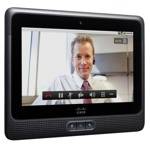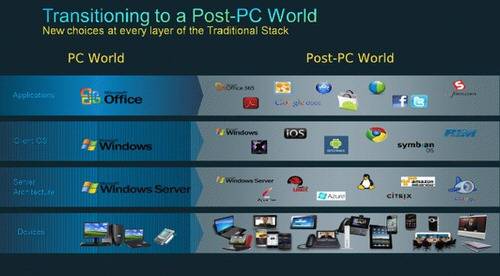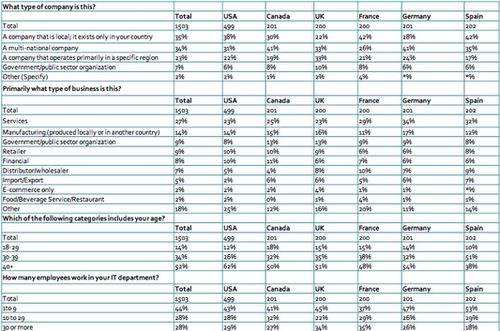Networking giant Cisco is attempting to quantify the enterprise market for tablets. So, the company spent the last several months of 2011 surveying 1,500 executives, middle management, salespeople and clerical staffs of medium to large business around the world. What they found was that, on average, enterprise IT shops handle one tablet request for every three smartphone requests across the world.

Cisco results are a stab at boiling down how IT departments really feel about the evolution of the “bring your own device” landscape. The results are a little surprising. Most enterprises do not condone the BYOD. While Cisco touts these results as the rise of tablets in the enterprise, it seems there is still along way to go before large corporations are flexible enough to support the requests of their employees.
The United States and France have the highest request for tablets, at 21%. That charge is led by senior executives in the U.S., of which 38% of respondents were issued a tablet. Spain has the highest excitement about tablets with 90% of IT managers believing the tablet will be more popular in the next two years.

Salespeople are the most likely to request a tablet. On average, 21% of salespeople requested a tablet, with German salespeople leading the group at 31%. That makes sense as salespeople are often the most connected in the workforce. Salespeople tend to make the most phone calls and are out and about more often with a need for quick access to information and presentations.
The U.S. also expressed the most concern about tablets with 75% of IT managers saying that new rules must be established around security and device usage. 48% of IT managers also want to see restricted access to applications for all employees.
The biggest want for IT managers was the ability to sync a tablet with an employee’s desktop at 71%. There are a variety of ways this can be done, either through VMWare or Citrix.
About half (48%) said that their companies would never authorize a BYOD policy. As a 30-year-old tech reporter, I would revolt if a BYOD was banned at my place of employment. A lot of U.S. respondents agreed with me as nearly two-thirds (64%) of employees were using personal devices without consent. The fear is that BYOD employees have access to company servers and compromise that data if the device is lost or stolen. Nearly 44% of IT managers said that handling BYOD issues diverts attention from other important IT projects.
The survey was not undertaken with some altruistic motive to inform IT managers around the world. Cisco has its own enterprise-grade tablet, the Cius, which it is hawking. Cisco said it has 1,100 enterprise companies using the Cius. Having been briefed on the Cius a couple of times in 2011, there was not much exciting to say about it. My thought on the Cius has always been along the lines of, “it is the physical, mobile manifestation of Cisco’s unified communications clients.”
Here is a table of the respondents to Cisco’s survey. It is important to know who the respondents were to get a clearer picture of the survey’s results. The company surveyed 499 people in the U.S. and about 200 in each other country on the survey including Canada, United Kingdom, France, Germany and Spain.

IT managers, how are you handling BYOD? Is there significant fear, uncertainty and doubt or is it a giant headache? Or is everything all roses in your BYOD IT department? Let us know in the comments.

















